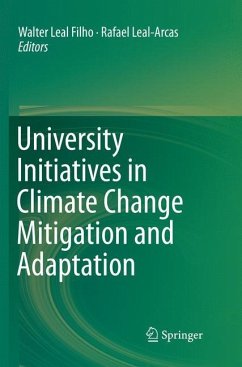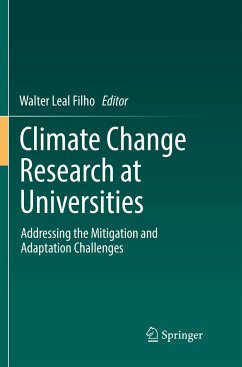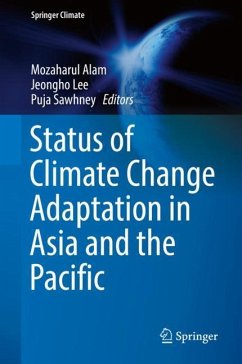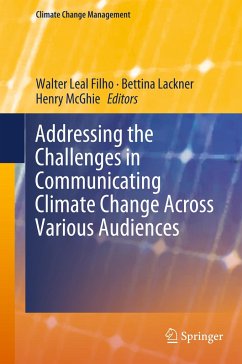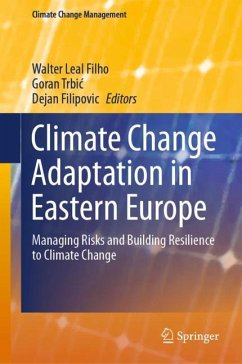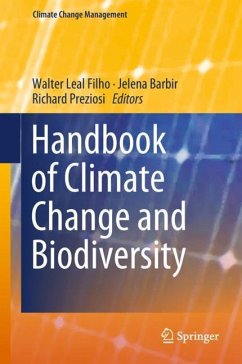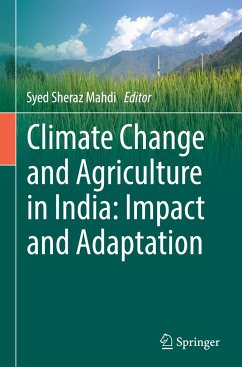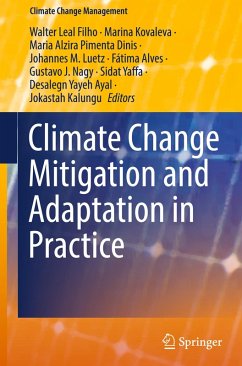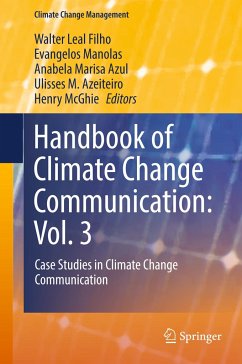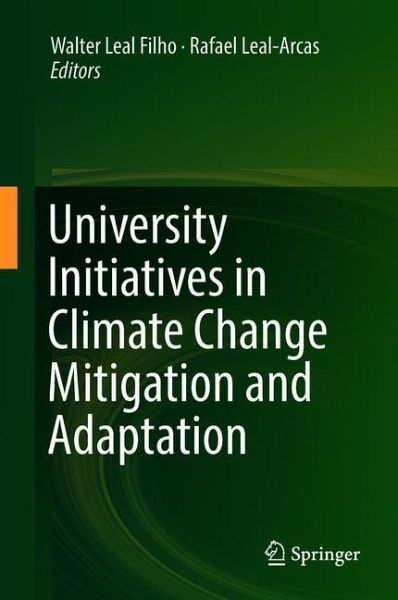
University Initiatives in Climate Change Mitigation and Adaptation

PAYBACK Punkte
53 °P sammeln!
This book focuses on the role of higher education institutions in addressing climate change mitigation and adaptation challenges, contributing to the development of this fast-growing field. Further, it includes the results of empirical research and offers ideas regarding on-going and future research initiatives. The contributions also-showcase the research and projects on issues pertaining to climate change at universities from across the globe;-document and promote ideas and experiences acquired in the execution of research projects, especially successful initiatives and best practices; and-i...
This book focuses on the role of higher education institutions in addressing climate change mitigation and adaptation challenges, contributing to the development of this fast-growing field. Further, it includes the results of empirical research and offers ideas regarding on-going and future research initiatives. The contributions also
-showcase the research and projects on issues pertaining to climate change at universities from across the globe;
-document and promote ideas and experiences acquired in the execution of research projects, especially successful initiatives and best practices; and
-introduce methodological approaches and projects that offer a better understanding of climate change across society and economic sectors.
The book is structured around two parts: lessons learned from climate change research, education, studies and projects. Each part focuses on mitigationand adaptation respectively, with many responses of the two modalities overlapping.
Thisbook is a valuable resource for researchers and practitioners in the fields of environment, human geography, business and economics, as well as academics and students, as it presents education, communication and awareness-raising projects on matters related to climate change at universities in both industrialised and developing countries, often in cooperation with government bodies, NGOs and other stakeholders.
-showcase the research and projects on issues pertaining to climate change at universities from across the globe;
-document and promote ideas and experiences acquired in the execution of research projects, especially successful initiatives and best practices; and
-introduce methodological approaches and projects that offer a better understanding of climate change across society and economic sectors.
The book is structured around two parts: lessons learned from climate change research, education, studies and projects. Each part focuses on mitigationand adaptation respectively, with many responses of the two modalities overlapping.
Thisbook is a valuable resource for researchers and practitioners in the fields of environment, human geography, business and economics, as well as academics and students, as it presents education, communication and awareness-raising projects on matters related to climate change at universities in both industrialised and developing countries, often in cooperation with government bodies, NGOs and other stakeholders.





